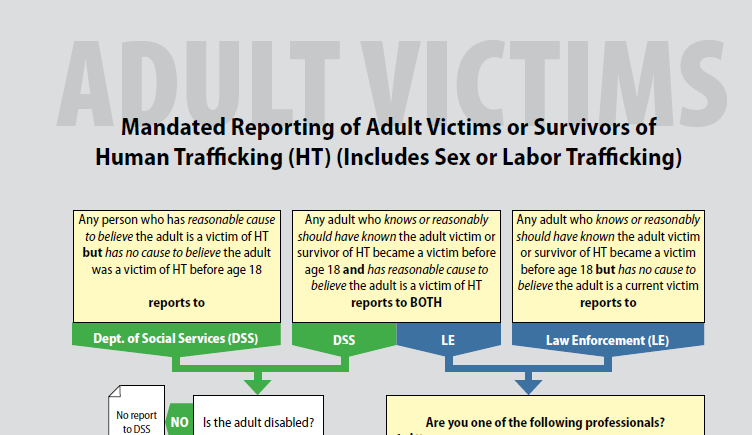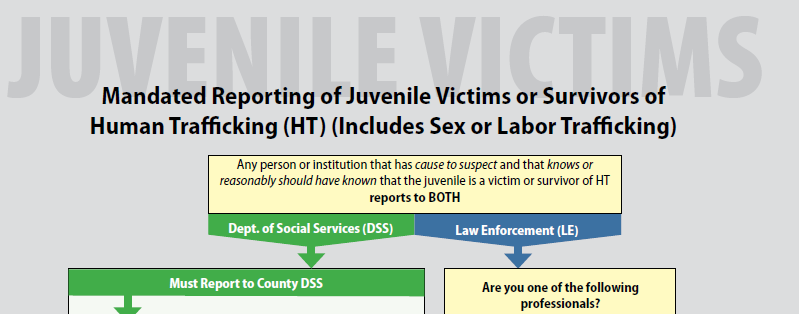January recognizes the importance of knowing about human trafficking. The President has declared January Human Trafficking Prevention Month (see the proclamation here). The North Carolina Governor and the Chief Justice have both declared January Human Trafficking Awareness Month (see the Governor’s proclamation here and the Chief Justice’s proclamation here). The purpose of these declarations is both a recognition that human trafficking in the United States and North Carolina exists and to educate our citizens about this issue. Partnerships are required for a successful response to combat the crime of human trafficking, which involves both sex and labor trafficking. The national, state, and local responses involve the prevention of human trafficking, protection for victims and survivors, and the prosecution of traffickers.
Everyone has a role, including you. In North Carolina, laws require any person or adult who has cause to suspect, knows, or reasonably should have known a juvenile is or was minor victim of human trafficking to make a report to a county department of social services and to local law enforcement. North Carolina law also requires that any adult who knows or reasonably should have known that another adult was a victim of human trafficking when that other adult was a juvenile make a report to local law enforcement. And, North Carolina law requires any person who has reasonable cause to believe a “disabled adult” is a victim of human trafficking make a report to the adult protective division of a county department of social services.
With funding and a partnership with the North Carolina Human Rights Commission and the Administrative Office of the Courts (AOC), I have created a new resource for individuals in North Carolina:
Human Trafficking: Mandatory Reporting and Agency Response.
This resource is a 22-page primer with flowcharts that is available on the School’s website at no cost. The purpose of this primer is to explain North Carolina reporting laws as they apply to human trafficking so that any person understands when they are required to make a report, how to make a report, and where the report must be made. A brief explanation of how the agency receiving the report handles the report is provided.
Designed to be user friendly, this primer includes a general definitions section, mandated reporting sections separated by juvenile and adult victims or survivors of human trafficking and by the agency to which the report is made. Included in the primer are sample conversations addressing confidentiality, case examples identifying when and where reports must be made, a flowchart addressing mandated reporting of juvenile victims or survivors of human trafficking, and a flowchart addressing mandated reporting of adult victims or survivors of human trafficking. The primer is color coded by reporting agency for easier reference: green indicates a county department of social services; blue indicates a local law enforcement agency.
The primer is not meant to be a tool for how to screen for human trafficking. However, the School has several resources that discuss identifying human trafficking. See our resource page here. Additional information and resources are available from the North Carolina Human Trafficking Commission on the AOC website here.


